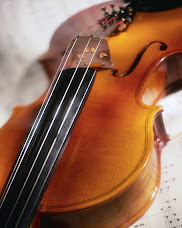(repost of an article published in the BC Fiddlers Newsletter, by Nathanael Powell.)
As a high school computer teacher in Surrey, I am always interested in how to use technology to enhance our lives - in this case, fiddling.
Our branch is looking to promote ourselves better through technology with a web log, or "blog." A blog is an online journal that is easily updated and accessible by anyone as long as they have an internet connection. There's not much on there yet, just our meeting and dance information, directions to the dance hall and a few links. However, a blog has potential to be a great way to keep members connected. It would be a good place to post local events, photos, tips for new members, set-lists or tunes that the group plans to learn. It can be set up so that multiple people can author it, taking the burden off of one member. We're going to give it a go and see how it works for our association. Our blog can be found at http://surreyoldtimefiddlers.blogspot.com/
With computers and the internet, it is also much easier to learn new tunes. One website that I recently came across is called Prairie Fiddlers (http://calfolk.ca/prairie/). They have an excellent tune index which lists many popular tunes played among Old-Time Fiddlers and include sheet music and sometimes a sound clip. I try to learn most things by ear, but it is nice to see the dots for tricky sections of some tunes. I did notice that some songs were different arrangements but for the most part it is a fantastic resource! Prairie Fiddlers also has some fiddling tips and tutorials that might be of interest.
Another great website is John Chamber's ABC Tune Finder (http://trillian.mit.edu/~jc/cgi/abc/tunefind). I ran a search for several of the tunes that we play and I got results in ABC format (text-based notation for music) and various image formats which display standard sheet music. If you are trying to find the dots for a particular tune, this could be your last stop. However, unlike Prairie Fiddlers, there is no index so you need to know what you're looking for. Also, there are no sound clips but you can hear the tunes in "midi" which is a computerized sound format.
Our branch is looking to promote ourselves better through technology with a web log, or "blog." A blog is an online journal that is easily updated and accessible by anyone as long as they have an internet connection. There's not much on there yet, just our meeting and dance information, directions to the dance hall and a few links. However, a blog has potential to be a great way to keep members connected. It would be a good place to post local events, photos, tips for new members, set-lists or tunes that the group plans to learn. It can be set up so that multiple people can author it, taking the burden off of one member. We're going to give it a go and see how it works for our association. Our blog can be found at http://surreyoldtimefiddlers.blogspot.com/
With computers and the internet, it is also much easier to learn new tunes. One website that I recently came across is called Prairie Fiddlers (http://calfolk.ca/prairie/). They have an excellent tune index which lists many popular tunes played among Old-Time Fiddlers and include sheet music and sometimes a sound clip. I try to learn most things by ear, but it is nice to see the dots for tricky sections of some tunes. I did notice that some songs were different arrangements but for the most part it is a fantastic resource! Prairie Fiddlers also has some fiddling tips and tutorials that might be of interest.
Another great website is John Chamber's ABC Tune Finder (http://trillian.mit.edu/~jc/cgi/abc/tunefind). I ran a search for several of the tunes that we play and I got results in ABC format (text-based notation for music) and various image formats which display standard sheet music. If you are trying to find the dots for a particular tune, this could be your last stop. However, unlike Prairie Fiddlers, there is no index so you need to know what you're looking for. Also, there are no sound clips but you can hear the tunes in "midi" which is a computerized sound format.


